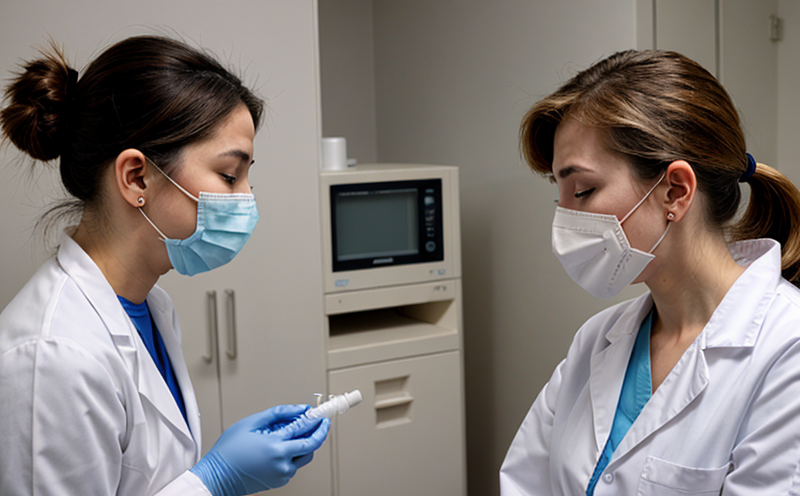Protein Allergen Digestibility Testing in Novel Foods
The rise of novel foods has brought about significant changes in the food industry, offering consumers a wider variety of dietary options. However, this growth also introduces new challenges regarding allergenicity and safety. Protein allergen digestibility testing is a critical step to ensure that these novel foods are safe for consumption by individuals with allergies or sensitivities.
Our laboratory specializes in evaluating the digestibility of protein allergens in novel foods using rigorous scientific methods. This service ensures compliance with regulatory requirements, enhances product safety, and supports innovation in the development of new food products. The testing process involves several key steps:
- Sample Preparation: Samples are carefully prepared to simulate real-life conditions as closely as possible.
- Digestion Simulation: Digestion is simulated using standardized protocols that mimic human digestive processes.
- Allergen Quantification: Quantitative analysis of allergenic proteins post-digestion.
- Analysis and Reporting: Comprehensive reports are generated based on the findings, providing detailed insights into allergen digestibility.
The results from this testing are essential for developers to make informed decisions about ingredient selection and processing methods. This ensures that products not only meet regulatory standards but also cater to the needs of consumers with specific dietary restrictions or preferences.
| Use Case | Description |
|---|---|
| New Product Development | Evaluating the digestibility of novel proteins in a new food product. |
| Ingredient Reformulation | Assessing changes made to an existing formula to improve allergen safety without compromising taste or texture. |
| Process Optimization | Identifying potential sources of allergens during processing and refining methods to enhance digestibility. |
| Allergen-Free Claims | Validating claims that a product is safe for individuals with specific allergies or sensitivities. |
| Regulatory Compliance | Maintaining adherence to current and future regulatory requirements related to allergens in food products. |
| Innovation Support | Providing data that can drive innovation by identifying new ways to manage allergenic risks in novel foods. |
The importance of this testing cannot be overstated, especially given the increasing prevalence of food allergies and sensitivities. By offering this service, we contribute to a safer, more informed market for consumers with dietary restrictions.
Quality and Reliability Assurance
- Standard Operating Procedures (SOPs): Our laboratory adheres strictly to internationally recognized standards, including ISO, ASTM, EN, and IEC guidelines.
- Calibration of Equipment: All instrumentation is regularly calibrated to ensure accurate results.
- Data Validation: Data from each test run undergoes multiple levels of validation to ensure accuracy and reliability.
- Training and Certification: Our personnel are trained extensively and certified in allergen testing procedures.
These measures guarantee that our results are reliable, reproducible, and consistent with international standards. This commitment to quality ensures trustworthiness in the data we provide to our clients.
International Acceptance and Recognition
- Compliance with International Standards: Our testing procedures are aligned with internationally recognized standards such as ISO 15149:2016, which sets the framework for allergen quantification in foods.
- Audits and Inspections: Regular audits by independent bodies ensure that we maintain compliance with these stringent requirements.
- Global Client Base: We serve clients across various countries, ensuring our services are recognized and accepted worldwide.
The global nature of the food industry necessitates a consistent approach to allergen testing. By adhering to international standards and maintaining a strong reputation for reliability, we ensure that our clients can trust in the results provided by this service.
Use Cases and Application Examples
- New Product Development: Testing novel ingredients to ensure they are safe for consumption without introducing new allergens.
- Allergen-Free Claims: Validating that a product can be labeled as free from specific allergens, such as nuts or dairy.
- Ingredient Reformulation: Assessing the impact of ingredient changes on allergenicity and digestibility.
- Process Optimization: Identifying and mitigating risks in processing methods that could lead to increased allergen presence.
The following table provides a more detailed look at some real-world examples:
| Use Case | Description |
|---|---|
| New Product Development | Evaluating the digestibility of novel proteins in a new food product. |
| Ingredient Reformulation | Assessing changes made to an existing formula to improve allergen safety without compromising taste or texture. |
| Process Optimization | Identifying potential sources of allergens during processing and refining methods to enhance digestibility. |
| Allergen-Free Claims | Validating claims that a product is safe for individuals with specific allergies or sensitivities. |
| Regulatory Compliance | Maintaining adherence to current and future regulatory requirements related to allergens in food products. |
| Innovation Support | Providing data that can drive innovation by identifying new ways to manage allergenic risks in novel foods. |
This testing is crucial for ensuring product safety and regulatory compliance, thereby supporting the development of safe and innovative food products.





